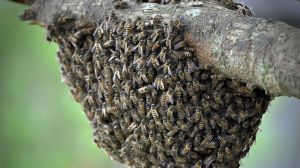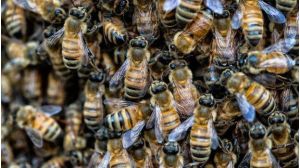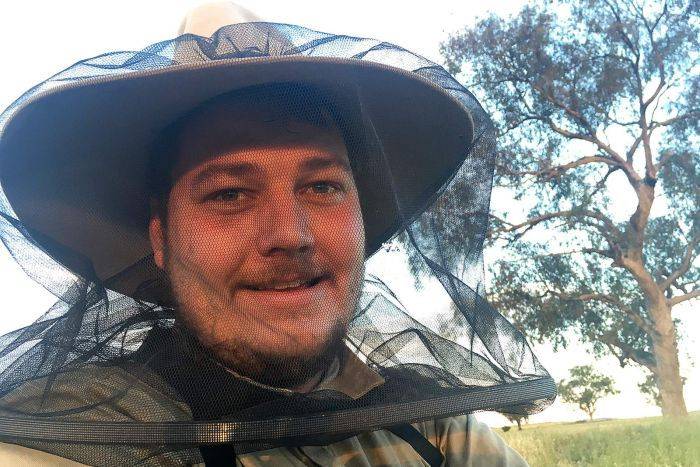
There are tricks of the trade when moving any type of livestock, but shifting a group of beehives takes real finesse, and there is an art to getting all the stock on the truck.
Beekeeper Dwayne Sykes is moving a group of hives from their nest in some grasses and flowers, in the hills above Wellington in the New South Wales central
The bees have been there for several months, fattening themselves up on native plants and the nearby canola fields.
But now it is time for them to move to an accredited organic site to produce organic honey, so they need to be loaded onto the truck for the journey.
Mr Sykes is using a forklift to load his hives, which he said had taken a lot of the backbreaking effort out of the industry.
"This makes it much less difficult. You ask any beekeeper over 50, they reckon we've got it easy," he said.
"We smoke the bees up to mask their senses, to stop them realising something unusual is happening.
"Then we just load the hives up on the truck.
"We do it right on dusk, when they're back in the hive, to make sure we leave none of them behind."
Bees settle in for the night during move
The hives are loaded with the entries pointing towards the front of the truck, which creates a stiff, cool breeze through the hive.
"They cluster up into a tight soccer ball and they stay there all night," Mr Sykes said.

"This is something that has been developed over a long period of time. My father bought out Neil Peadon and he was like 'the master'.
"He was one of the first beekeepers to palletise the handling, otherwise we'd still be loading them by hand."
Mr Sykes said his father had moved to Dubbo after working with bees at Port Kembla for 25 years.
"He would do two weeks in the tugs and two weeks in the bees," he said.
"I'm a chippy [carpenter] by trade, but I just love this.
"I'd like to think my son or daughter might follow me into the business."
Posted




